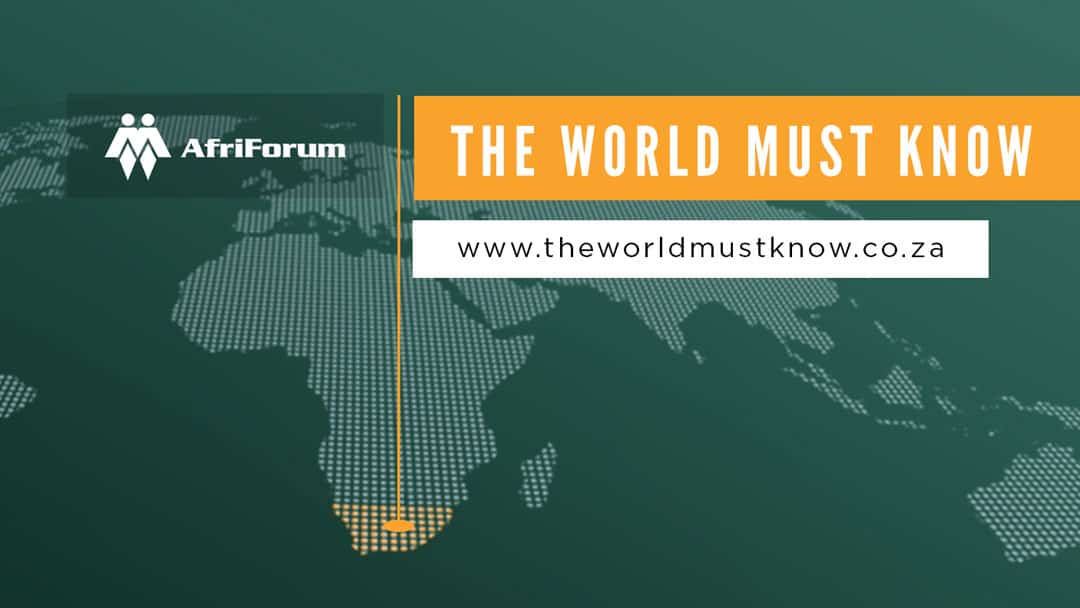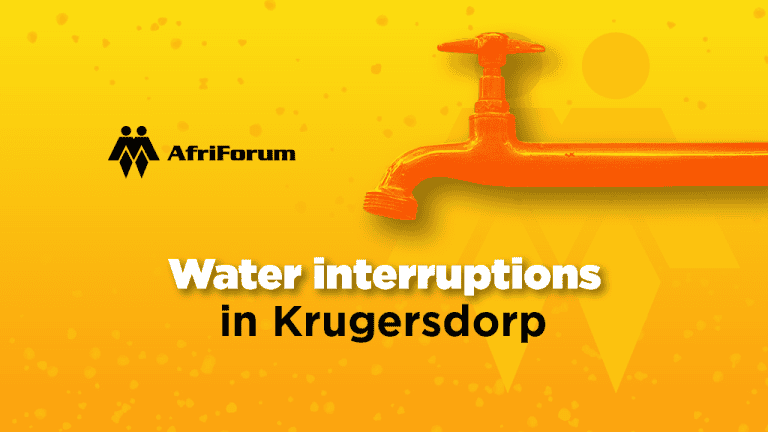#TheWorldMustKnowNulled
[et_pb_section fb_built=”1″ admin_label=”section” _builder_version=”4.2.2″ custom_margin=”0px||||false|false” custom_padding=”0px||||false|false”][et_pb_row admin_label=”row” _builder_version=”3.25″ background_size=”initial” background_position=”top_left” background_repeat=”repeat”][et_pb_column type=”4_4″ _builder_version=”3.25″ custom_padding=”|||” custom_padding__hover=”|||”][et_pb_text admin_label=”Text” module_id=”report” _builder_version=”4.2.2″ background_size=”initial” background_position=”top_left” background_repeat=”repeat”]
The practice in South Africa made it abundantly clear, however, that the government is not interested in dialogue, and where there is indeed dialogue, it is nothing more than paying lip service to minority rights. We will continue these discussions, but we aren’t naïve. We do not expect the international community to solve South Africa’s problems on behalf of the South African government. However, there are various ways in which to pressure the South African government into protecting minority rights more effectively, or even to warn them of the possible effects of destructive government decisions and actions.
[/et_pb_text][et_pb_text admin_label=”Text” module_id=”report” _builder_version=”4.2.2″ background_size=”initial” background_position=”top_left” background_repeat=”repeat”]
[/et_pb_text][/et_pb_column][/et_pb_row][et_pb_row admin_label=”row” _builder_version=”3.25″ background_size=”initial” background_position=”top_left” background_repeat=”repeat”][et_pb_column type=”4_4″ _builder_version=”3.25″ custom_padding=”|||” custom_padding__hover=”|||”][et_pb_video src=”https://www.youtube.com/watch?v=f-mS1cbQ9Zk” image_src=”//i.ytimg.com/vi/f-mS1cbQ9Zk/hqdefault.jpg” thumbnail_overlay_color=”rgba(0,0,0,0.6)” _builder_version=”4.2.2″ width=”80%” module_alignment=”center”][/et_pb_video][/et_pb_column][/et_pb_row][et_pb_row admin_label=”row” _builder_version=”3.25″ background_size=”initial” background_position=”top_left” background_repeat=”repeat”][et_pb_column type=”4_4″ _builder_version=”3.25″ custom_padding=”|||” custom_padding__hover=”|||”][et_pb_text admin_label=”Text” _builder_version=”4.2.2″ background_size=”initial” background_position=”top_left” background_repeat=”repeat” hover_enabled=”0″]
AfriForum announces comprehensive international campaign against civil rights violations in South Africa
The South African civil rights organisation AfriForum today launched a comprehensive campaign for the protection of civil rights in South Africa. Various countries on almost all continents will be visited as part of the campaign. Issues on which the campaign will specifically focus include expropriation without compensation, as well as farm murders, hate speech and the South African government’s veneration of human rights violators.
The campaign rests on three pillars:
- Creating awareness of the situation in South Africa;
- Raising support among opinion formers, governments and other decision makers; and
- Mobilising the South African diaspora and foreigners with interests in South Africa to swing into meaningful action.
AfriForum also published a report today that sets out how the rights of minorities are violated in South Africa on various terrains. The report contains information on the government’s warped perception of democracy, minority rights and equality, hate speech against minorities, the attack on the property rights and heritage of minorities, as well as the phasing out of Afrikaans and other minority languages in the public sphere. It also highlights the South African government and the ruling ANC’s veneration of the world’s worst human rights violators and the accompanying animosity towards countries where human rights are protected to a large extend.
The campaign will commence with a visit to the US in February, during which the report will be discussed with various decision makers in Washington, D.C.
Thereafter the campaign will proceed with various international awareness actions, including visits to countries in Southern America, Europe, Africa, Asia and Australia. AfriForum has already started discussions with various governments and other decision makers in these countries.
AfriForum also plans to involve the United Nations (UN) by liaising with forums and role-players within the UN with whom AfriForum have not corresponded before.
In the run-up to today’s announcement, AfriForum submitted a complaint last week to the UN’s Special Rapporteur on the Situation of Human Rights Defenders against President Cyril Ramaphosa and the former Minister of International Relations and Cooperation, Lindiwe Sisulu. This follows their attempts at convincing the world that farm murders and land grabs do not exist in South Africa.
Ernst Roets, Head of Policy and Action at AfriForum, says that AfriForum is still committed to addressing South Africa’s crises within South Africa, and that the organisation still believes in continued dialogue.
AfriForum-The-world-must-know-report.pdf
[/et_pb_text][/et_pb_column][/et_pb_row][et_pb_row _builder_version=”4.2.2″][et_pb_column _builder_version=”4.2.2″ type=”4_4″][et_pb_code _builder_version=”4.2.2″ hover_enabled=”0″][/et_pb_code][/et_pb_column][/et_pb_row][/et_pb_section]











